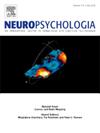The relationship between executive functions and the perspective-taking skill of theory of mind: Insights from deaf and hard of hearing children with cochlear implants
IF 2
3区 心理学
Q3 BEHAVIORAL SCIENCES
引用次数: 0
Abstract
Previous research in hearing children has consistently found theory of mind (ToM) is positively associated with executive functions (EF). However, this question has been far less examined in deaf and hard of hearing children (DHH) with cochlear implants. This may be because of the heterogeneity of developmental contexts and especially related to language that DHH children experience. The purpose of the study was to explore developmental differences in the perspective-taking skill of ToM and EF by using cluster analysis to compare groups of DHH adolescents who are CI users with typically developing hearing adolescents, aiming to identify subgroups with similar cognitive and processing profiles. Participants were 88 adolescents (12–16 years old) of which 34 were DHH with cochlear implants. The results showed that in the hearing group EF scores correlated positively with perspective-taking performance but not in the DHH group. The analysis of the hearing children's results revealed there were three clusters based on clear performance levels. In the DHH group, there was much variability and more complex relationships between both abilities. We conclude that DHH children's variable experience with early communication and access to language disrupts the typical coupling of ToM and EF.
执行功能与心智理论换位技巧的关系:来自耳蜗植入的聋儿和重听儿童的见解
以往对听力正常儿童的研究一致发现心理理论(ToM)与执行功能(EF)呈正相关。然而,这个问题在耳蜗植入的失聪和重听儿童(DHH)中研究得很少。这可能是因为发育环境的异质性,特别是与DHH儿童所经历的语言有关。本研究的目的是通过聚类分析比较使用CI的DHH青少年群体与正常发育的听力青少年群体,探讨ToM和EF在观点采纳技能方面的发展差异,以确定具有相似认知和加工特征的亚群体。参与者为88名青少年(12-16岁),其中34人为耳蜗植入的DHH。结果显示,听力组EF得分与换位表现呈正相关,而DHH组则无显著相关。对听力儿童结果的分析显示,基于明确的表现水平,有三组。在DHH组中,两种能力之间存在很大的可变性和更复杂的关系。我们的结论是,DHH儿童在早期沟通和语言获取方面的可变经验破坏了ToM和EF的典型耦合。
本文章由计算机程序翻译,如有差异,请以英文原文为准。
求助全文
约1分钟内获得全文
求助全文
来源期刊

Neuropsychologia
医学-行为科学
CiteScore
5.10
自引率
3.80%
发文量
228
审稿时长
4 months
期刊介绍:
Neuropsychologia is an international interdisciplinary journal devoted to experimental and theoretical contributions that advance understanding of human cognition and behavior from a neuroscience perspective. The journal will consider for publication studies that link brain function with cognitive processes, including attention and awareness, action and motor control, executive functions and cognitive control, memory, language, and emotion and social cognition.
 求助内容:
求助内容: 应助结果提醒方式:
应助结果提醒方式:


